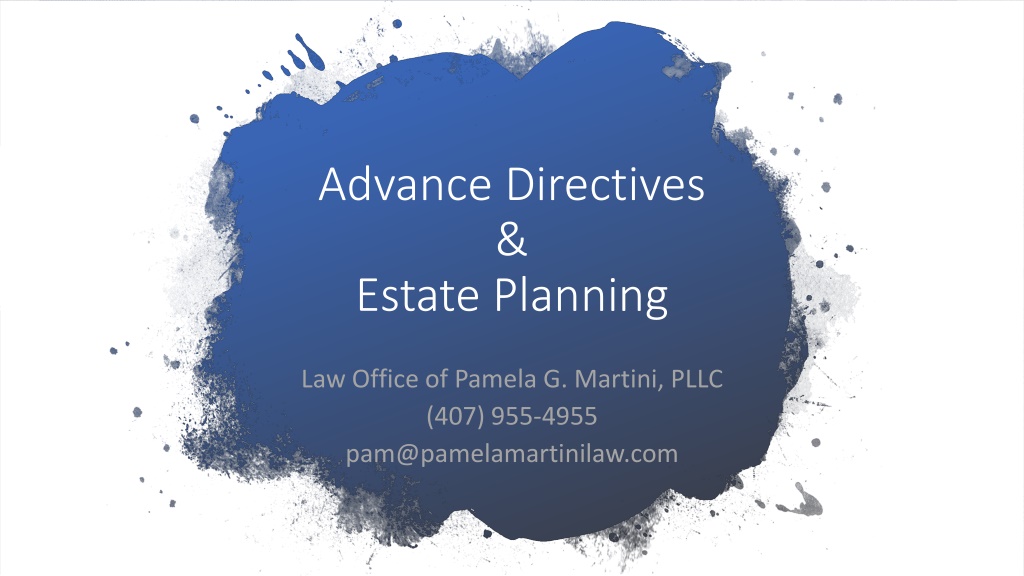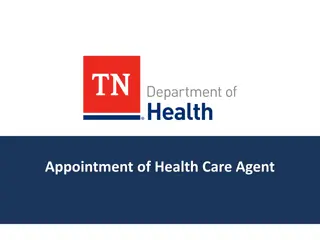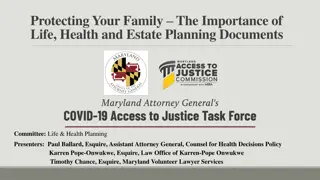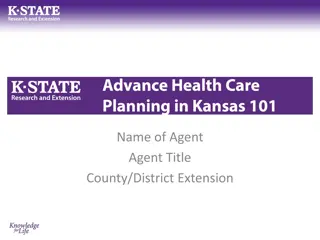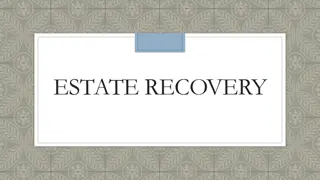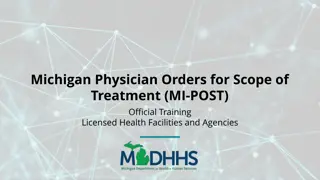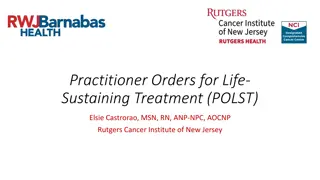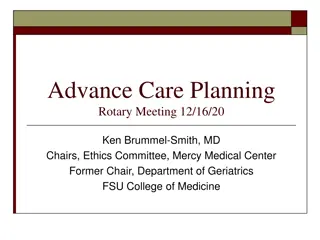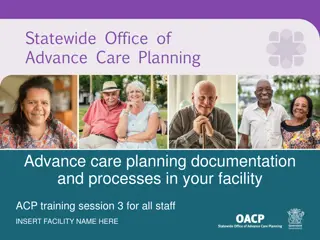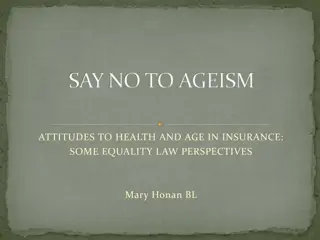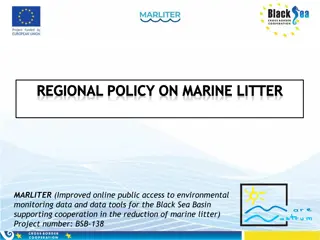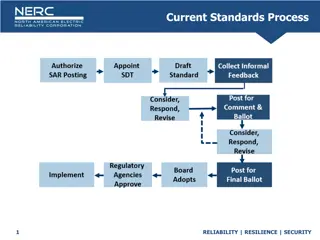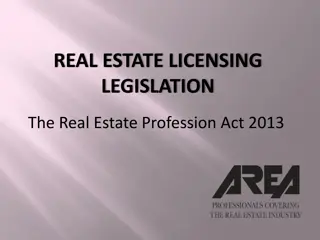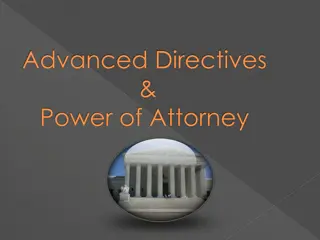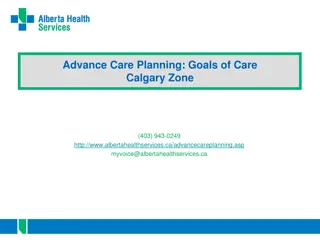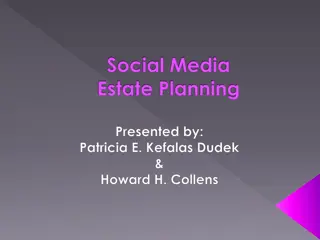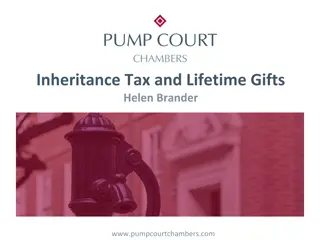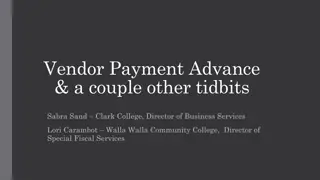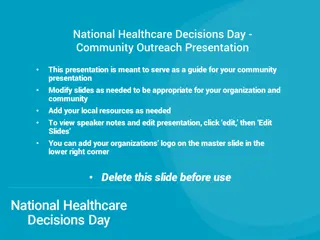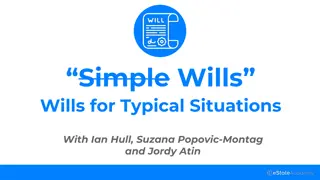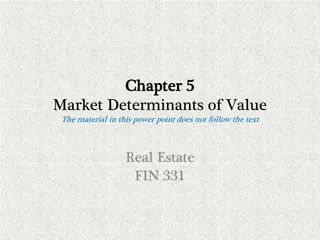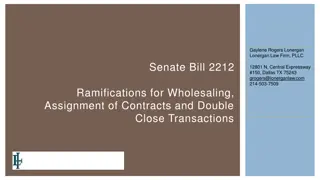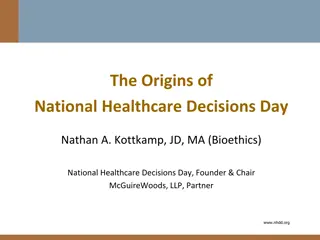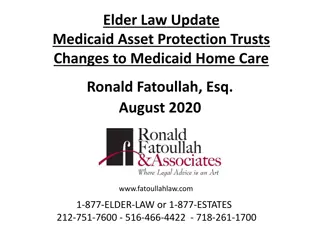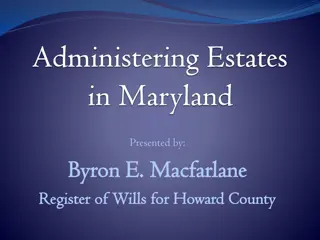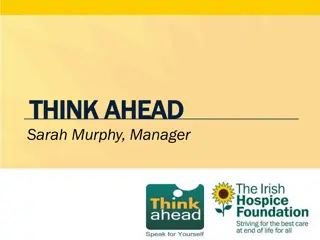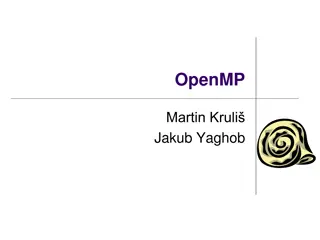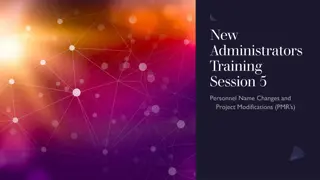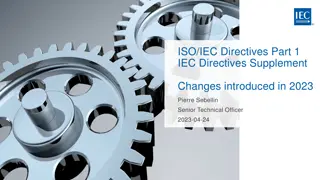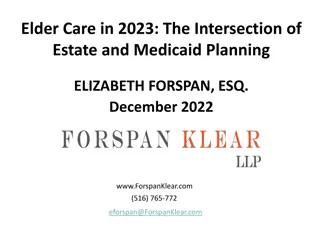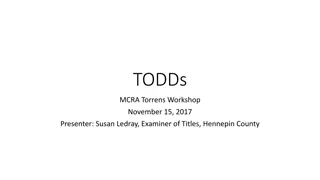Essential Estate Planning and Advance Directives Guidance
Gain valuable insights into advance directives and estate planning essentials offered by the Law Office of Pamela G. Martini, PLLC. Learn about health care and financial decision makers, document accessibility, necessary steps, and key considerations. Understand Florida laws regarding health care proxies, surrogates, decision-making hierarchy, and the significance of making informed choices in advance.
Download Presentation

Please find below an Image/Link to download the presentation.
The content on the website is provided AS IS for your information and personal use only. It may not be sold, licensed, or shared on other websites without obtaining consent from the author. Download presentation by click this link. If you encounter any issues during the download, it is possible that the publisher has removed the file from their server.
E N D
Presentation Transcript
Advance Directives & Estate Planning Law Office of Pamela G. Martini, PLLC (407) 955-4955 pam@pamelamartinilaw.com
Who are my Health Care Decision Makers? Who are my Financial Decision Makers? Are my documents readily accessible? What STEPS do I need to take NOW to assist my family in the event of my hospitalization or incapacity? Takeaways / Action Items
Florida Health Care Proxy Designation of Health Care Surrogate Living Will Five Wishes Health Care Decisions
The biggest question/concern in estate planning is always WHO?
If you dont make the choice, Florida law will make it for you
Health Care Proxy Section 765.401, Fla. Statutes If an incapacitated patient has not executed an advance directive, or the designated surrogate is no longer available, health care decisions may be made by (in order of priority): 1. A court appointed Guardian 2. Spouse of patient 3. Adult child of patient, or if more than one, by a majority of adult children who are reasonably available for consultation 4. Parent of patient 5. Adult Sibling of patient 6. Adult Relative of patient 7. Close Friend of patient 8. Clinical Social Worker
Designation of Designation of Health Care Surrogate Health Care Surrogate Section 765.202, Fla. Statutes Form that must be signed with two witnesses, who are not named in document One witness cannot be spouse or blood relative Make sure to name backups Should contain HIPAA Release to allow surrogate(s) to get your medical records Notarization NOT necessary Can be revoked orally A Surrogate can make decisions when you can no longer make them yourself
Your Surrogate has NO authority as long as you can make your own decisions NO
Living Will Living Will Section 765.302, Fla. Statutes Form that must be signed with two witnesses One witness cannot be spouse or blood relative Notarization NOT necessary Nutrition/hydration are life-prolonging procedures Gives your Surrogate directions on removing life- prolonging procedures
A Living Will is NOT a DNR and will not prevent you receiving ventilator support
Wish 1: The Person(s) to make decisions for me Wish 2: The kind of medical treatment I want/don t want Wish 3: How comfortable I want to be Wish 4: How I want people to treat me Wish 5: What I want my loved ones to know www.fivewishes.org
Durable Power of Attorney Living Trust Joint ownership Convenience accounts Guardianship Financial Decisions
Durable Power of Attorney Section 709.2105, Fla. Statutes Form that must be signed with two disinterested witnesses and notarized Make sure to name alternate agents Allows agent to sign any document on principal s behalf Allows agent to access bank accounts and manage assets No Proxy or Default under Florida law Can only be revoked in writing Appoints an Agent who can act on your behalf
Your Agents authority is EFFECTIVE IMMEDIATELY
Durable Power of Attorney Section 709.2202, Fla. Statutes Power to make gifts of principal s property (even to agent) Power to make gifts for public benefits (important if principal should ever need Medicaid) Power to create/amend/revoke trust Power to create/change right of survivorship or beneficiary designations Power to access safe deposit box Power to manage digital assets Power to disclaim property Super powers must be specifically initialed
Remember: These documents are REVOCABLE as long as you have capacity
Entity that can hold assets during your life and receive assets at your death You are initial trustee Successor trustee is appointed that can manage assets if you become incapacitated (or when you die) Living Trust
Joint ownership = can manage/control but cannot sell or transfer alone Convenience accounts = liability issues Guardianship = last resort Less desirable options
Remote Online Notarization Effective January 1, 2020 for transactional documents, such real estate closings Effective July 1, 2020 for Wills and Advance Directives Documents can be notarized using real time audio/video conferencing technology Witnesses can also be remote, UNLESS Person executing document meets definition of Vulnerable Adult (assisted living or nursing home residents) Super powers on Durable Power of Attorney must be witnessed in person
Other Documents to Consider: Designation of Pre-Need Guardian (for Yourself or Minor Child) Designation of Health Care Surrogate for Minor Child HIPAA Release Appointment of Agent for Disposal of Remains Uniform Donor Card Form to Donate Body for Medical Study Pre-paid cremation or burial plan
Where should I keep my documents? Be sure your original documents are in a secure location, but not so secure that no one can find them Safe Deposit Box is not best unless your agent/surrogate has access Power of Attorney can be recorded in public records, but not required Power of Attorney can be on file at bank and should be shared with discretion Health Care Surrogate should be on file with primary care physician and taken to hospital Surrogate and backup surrogates should have copies
Wait! Don t I Need a Will? Yes, everyone should have a Last Will and Testament which will: Name a Personal Representative (person in charge of administering estate) Name a Guardian for Minor Children Describe how assets are to be distributed (what/when/to whom) Create a Trust (optional) ONLY effective at your death All other documents discussed are ONLY effective while you are living Every document has a different job to do
When a Will is Critical Florida law directs where your assets go if you don t have a Will, but this default may not be what you would choose if: You want a significant other or friend to inherit your assets You have a blended family You want to disinherit a family member You want something other than equal distribution between children You have no natural heirs You want to leave assets to charity You have a disabled child or parent receiving public benefits You have a spouse receiving public benefits or who is incapacitated
NOTE: Having a Will does NOT mean you avoid probate in Florida
What STEPS should I take NOW to assist my family in the event of my hospitalization or incapacity? If you have an estate plan, find and review your documents to see if you want any changes Make sure your agent/surrogate has up to date copies of your documents and your attorney s contact information If you don t have an estate plan, IT S TIME! Locate insurance policies and make sure beneficiary designations are up to date Review bank and investment accounts to see if beneficiary designations are up to date; add if necessary; make list of accounts Make a list of monthly bills with account numbers, ESPECIALLY IF YOU PAY YOUR BILLS ONLINE Make a list of medical providers and prescriptions for yourself and minor children Make a list of online passwords, use password manager app, or put in a VERY secure location; update regularly; include phone, computer, email Keep emergency contact information with you at all times
